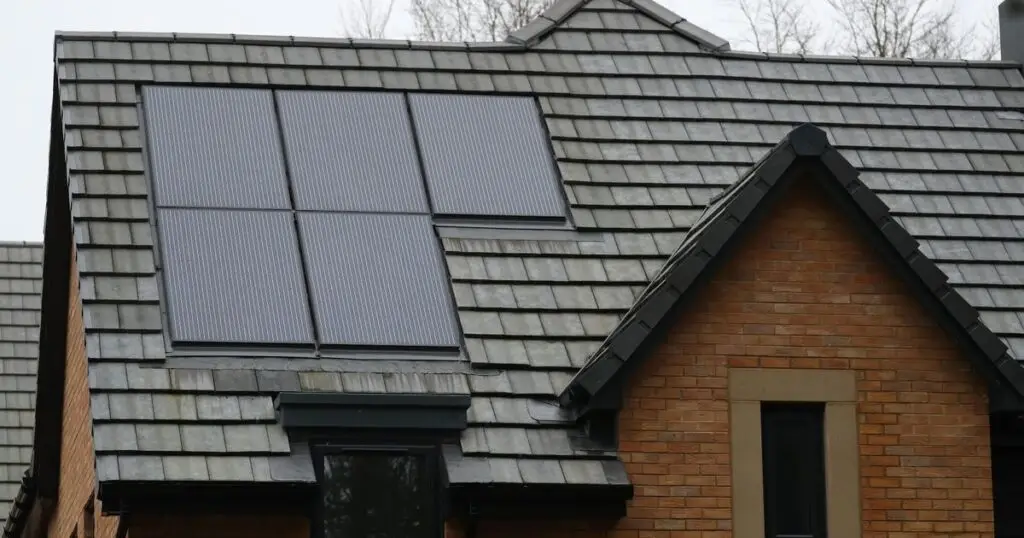A new initiative is set to bring renewable energy to tens of thousands of homes in the West Country. Launching with a substantial financial commitment, the project aims to reduce energy costs and foster green technology growth in the region.
The programme, backed by notable investments, seeks to empower households within the Bristol and Bath areas with sustainable energy solutions. The anticipated impact includes significant savings on energy bills and the creation of numerous jobs in the green sector.
Region-wide renewable energy initiative
A newly established fund promises to revolutionise the way homes in the West Country receive their energy. This initiative comes as part of a concerted effort by the West of England Combined Authority (Weca) to lead on renewable energy solutions. By allocating £10 million and seeking additional private investments, Weca aims to generate the necessary capital to support approximately 36,000 homes in the Bristol and Bath regions with green energy.
The programme is expected to bring far-reaching benefits. In addition to fostering a cleaner environment, the initiative is projected to save households a total of £6 million on energy bills over the next 12 years. This bold step underscores the region’s commitment to advancing its renewable energy agenda.
Investment and economic implications
The strategy employed by Weca is to leverage initial public funding to attract substantial private investment. Dan Norris, the chair of Weca, highlighted the importance of this approach, noting that the £10 million public investment is designed to build investor confidence. This move is anticipated to draw a further £90 million from private investors, which, in turn, is expected to drive economic growth and job creation in vital Net Zero industries.
Norris emphasised the pioneering role of the West of England in renewable energy and green technology. He stated, “This fund is a massive vote of confidence in the potential of our region to be a leader in renewable energy and green technology.” The anticipated influx of private capital is crucial for the success of the fund and the realisation of its ambitious goals.
Partnership with BBRC
The fund’s model is developed in partnership with BBRC, a place-based investor with a significant track record. BBRC has invested £71 million in the West of England over the past decade, making it a key player in the region’s developmental initiatives.
Ed Rowberry, chief executive of BBRC, expressed his enthusiasm for the initiative. He remarked, “We’re delighted the West of England Mayoral Combined Authority has taken the decision to initiate this £100m fund.” Rowberry highlighted the necessity for new delivery models focusing on private sector investment and alternative funding mechanisms to meet the region’s Net Zero and nature recovery targets.
BBRC’s involvement is instrumental in ensuring the fund’s success. Their experience and existing financial commitments in the region provide a robust foundation for attracting additional private investments. This partnership exemplifies the importance of collaboration between public authorities and private entities in tackling major environmental challenges.
Broader context and environmental impact
The initiative aligns with broader global efforts to combat climate change through the adoption of renewable energy sources. Local governments like Weca play a pivotal role in these efforts by implementing region-specific strategies that can be scaled up or adapted by other regions.
The projected £6 million saving on household energy bills is a significant driver for public support and participation. By reducing reliance on non-renewable energy sources, the initiative not only contributes to global climate goals but also offers direct financial benefits to residents.
In the long run, the initiative aims to foster a culture of sustainability within the region. Educating the public on the benefits of renewable energy and providing tangible examples of its effectiveness are crucial components of this goal.
Challenges and future prospects
Despite the optimistic projections, the initiative faces several challenges. Securing the anticipated £90 million from private investors requires substantial effort and convincing. The success of the project is heavily dependent on the confidence and willingness of the private sector to invest in green technologies.
The long-term success of the initiative also hinges on the public’s acceptance and adoption of renewable energy solutions. Continuous engagement and education efforts are essential to sustain the momentum and ensure widespread participation.
Looking forward, the initiative could serve as a blueprint for other regions. If successful, it could demonstrate the viability of large-scale renewable energy projects funded through a mix of public and private investments.
Summary and outlook
The £100 million renewable energy fund represents a bold step towards a sustainable future for the West Country. By combining public funding with private investments, the initiative aims to transform the energy landscape of the region.
The expected benefits are manifold: reduction in energy costs, creation of jobs in the green technology sector, and a significant step towards meeting climate goals. The project underscores the region’s leadership in renewable energy adoption.
Final thoughts from stakeholders
Dan Norris reiterated his call to action for investors and businesses to join the venture. He highlighted the region’s potential to lead in green technology and underscored the importance of collaborative efforts in achieving these goals.
The renewable energy fund for the West Country heralds a new era of sustainable living for thousands of households. By effectively leveraging public and private investments, the initiative promises not only environmental benefits but also economic growth and reduced energy costs.
As the project progresses, it has the potential to serve as a model for other regions, showcasing the efficacy of combining public funds with private investments to achieve large-scale renewable energy targets. The future looks promising for the West Country’s green energy aspirations.


